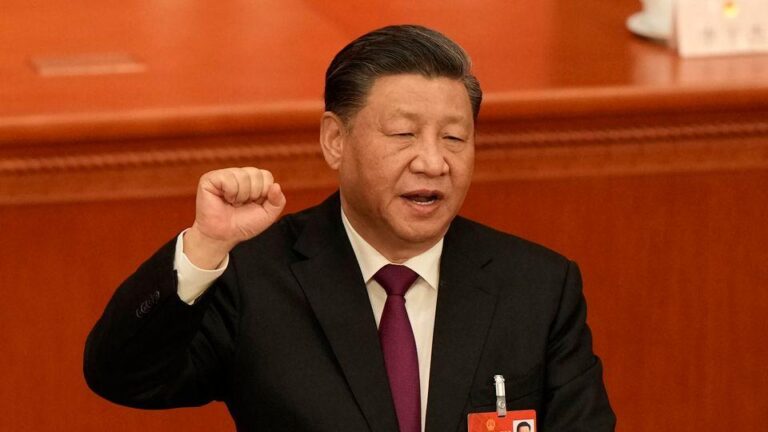Chinese President Xi Jinping made a surprise visit to Tibet on Wednesday, emphasizing themes of national unity and economic development in the strategically sensitive region. The unannounced trip marks a rare public appearance in Tibet, underscoring Beijing’s continuing focus on integrating the area more closely with the rest of the country amid ongoing ethnic tensions and international scrutiny. Xi’s visit highlights the government’s commitment to stability and progress in Tibet as part of its broader national agenda.
China’s Xi Emphasizes National Unity Amid Tibet Visit
During an unannounced visit to Tibet, President Xi Jinping underscored the importance of national cohesion as a foundation for the region’s ongoing development. His remarks came amidst increasing attention to Tibet’s strategic significance and cultural heritage. Xi highlighted the role of unity in accomplishing economic progress and maintaining social stability, emphasizing that the prosperity of Tibet is intrinsically linked to the broader aspirations of the nation.
Key points from Xi’s visit include:
- Reaffirmation of policies aimed at improving infrastructure and livelihoods in Tibet.
- Commitment to preserving Tibetan cultural identity within a unified China.
- Promotion of environmentally sustainable development strategies.
- Strengthening social harmony and national security in the region.
| Focus Area | Initiative | Expected Outcome |
|---|---|---|
| Infrastructure | Expanding transportation networks | Improved connectivity |
| Culture | Preserving Tibetan traditions | Enhanced cultural pride |
| Environment | Green energy projects | Reduced ecological footprint |
| Security | Community engagement programs | Greater social harmony |
Focus on Economic Growth and Infrastructure Development in Tibetan Region
Xi Jinping’s visit underscored a strategic push to accelerate economic progress and modernize infrastructure across Tibet. During his surprise trip, the Chinese leader emphasized enhancing connectivity through new roads, railways, and airports aimed at integrating the region more deeply with the national economy. Investments in energy projects, including hydroelectric and solar power, were highlighted as critical pillars supporting sustainable development and reducing dependence on traditional fossil fuels. These initiatives reflect a broader goal of lifting local living standards by fostering job creation and encouraging tourism growth, as well as facilitating smoother trade corridors.
Key focus areas include:
- Expansion of transport networks linking remote areas
- Promotion of clean energy infrastructures
- Development of urban centers as hubs of commerce
- Support for technological innovation in agriculture
| Project | Purpose | Status |
|---|---|---|
| Lhasa-Nyingchi Railway | Improve regional transport | Under construction |
| Hydropower Expansion | Clean energy supply | Ongoing |
| Lhasa Urban Development | Smart city upgrades | Planning stage |
Recommendations for Strengthening Cultural Integration and Sustainable Progress
To bolster social cohesion while fostering sustainable growth in Tibet, it is essential to amplify cross-cultural dialogues and economic collaboration between diverse ethnic communities. Initiatives focusing on education exchange programs, preservation of local languages, and promotion of traditional arts can serve as vital instruments for nurturing mutual respect and deeper understanding. Additionally, investing in infrastructure projects that prioritize environmental sustainability will not only improve living standards but also align with long-term ecological objectives crucial for the region’s terrain and biodiversity.
- Enhance bilingual education to bridge cultural divides and empower youth.
- Support community-based tourism respecting local customs and environmental limits.
- Implement green energy initiatives such as solar and wind power investments.
- Promote inclusive policymaking with active involvement from Tibet’s ethnic groups.
| Focus Area | Key Actions | Expected Outcomes |
|---|---|---|
| Education | Introduce bilingual curricula | Greater cultural understanding, youth empowerment |
| Economy | Develop sustainable tourism models | Job creation, preservation of heritage |
| Environment | Expand renewable energy usage | Reduced emissions, resource conservation |
| Governance | Encourage participatory policy forums | Inclusive decision-making, social harmony |
The Conclusion
As President Xi Jinping’s unexpected visit to Tibet comes to a close, his emphasis on unity and development signals Beijing’s continued focus on integrating the region more closely with national priorities. The trip underscores the Chinese leadership’s commitment to economic growth and social stability in Tibet, even as questions remain over the balance between cultural preservation and state control. How this visit will impact Tibet’s political landscape and its people will be closely watched in the weeks and months ahead.




